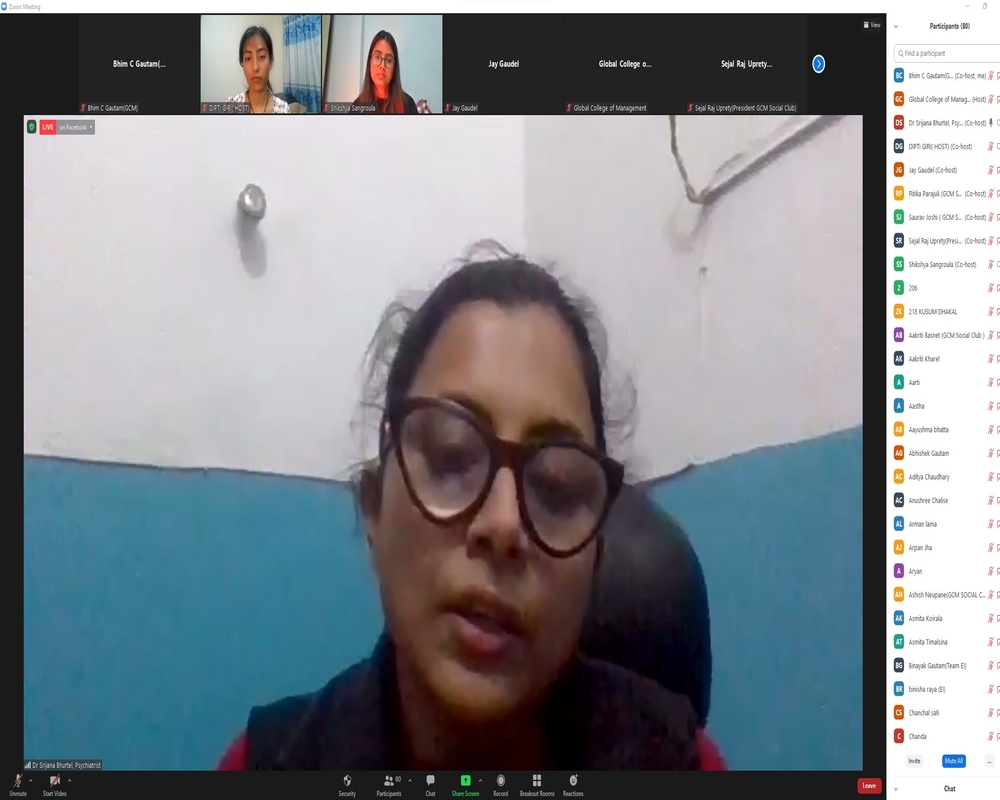Admissions open for +2 Management
5/15/2024

Nepal is a country full of different cultures and traditions; but when it comes to mental illness, each of these cultures shares the same concepts. In Nepal, most of the people think that suffering from mental illness is the same as being mad, becoming unfit to remain in society and the family due to loss of control over self, or even being possessed by a holy spirit or a black magic. Individuals with severe mental disorders, as well as their family members, are targets of stigma and discrimination to the point where they hesitate to come forward for appropriate treatment. Even patients with neurotic disorders do not like to consult mental health professionals because of the stigma of mental disease. Although Nepal's constitution regards health as a basic human right, the system’s definition of health and its exclusion of psychological care has led to a faulty understanding of this right, and the Nepali Health Care System neglects this aspect of people’s health care treatments.
In terms of financing, less than 1 percent of health care expenditures by the government are directed toward mental health. Although as yet there is no separate mental health legislation, a final draft of mental health legislation has been prepared and under review in the ministry of health. The law in Nepal continues to define mental illness as a madness. In the civil code, the legal definition of mental illness is not clarified, but the language of the legislation refers to someone with a broken mind. As noted above, this attitude is reflected in everyday practice.
Although increased awareness of mental health and mental disorders is to be welcomed, there are important challenges in access to mental health care in Nepal. These include:
Despite its challenges, attention to mental health in Nepal is increasing. The country has a national mental health policy, and human resource development is gradually taking place. In addition, there is a network within the general health service system where mental health can be integrated. There is a gradual increase in awareness of mental health in the general population, and the number of people seeking treatment in the mental health institution has increased. Psychotropic drugs are widely available, and are included up to the primary health center in the "essential drug" list.
As mental illness is still stigmatized in Nepal our GCM Social Club wanted to break this stigma and hence organized a zoom webinar where mental health expert Dr Srijana Bhurtel was the key speaker along with social media star Ms. Shikshya Sangroula who also shared her experience on mental illness. Different questions were put forward to the mental health expert from students and the expert also shared what can be done at this age for better mental states. The entire program was a huge success, thanks to all the participants and guests that attended this webinar. The session was also streamed live on Facebook.
If you want to see the session then here is the Facebook link:
Facebook Live of Interactive Session on Mental Health
5/15/2024